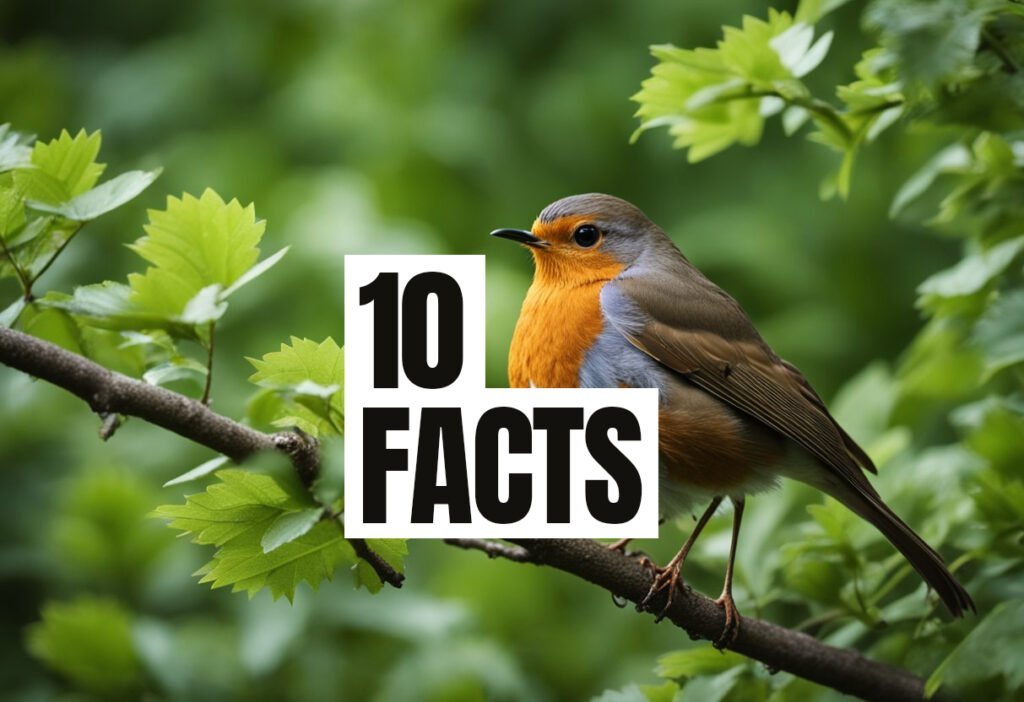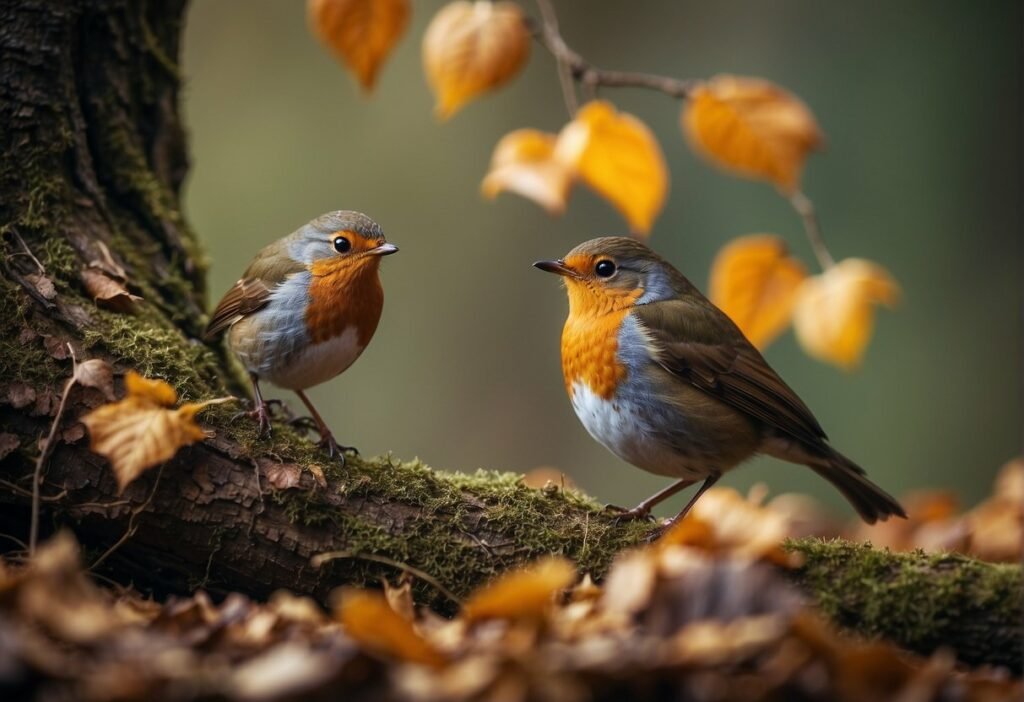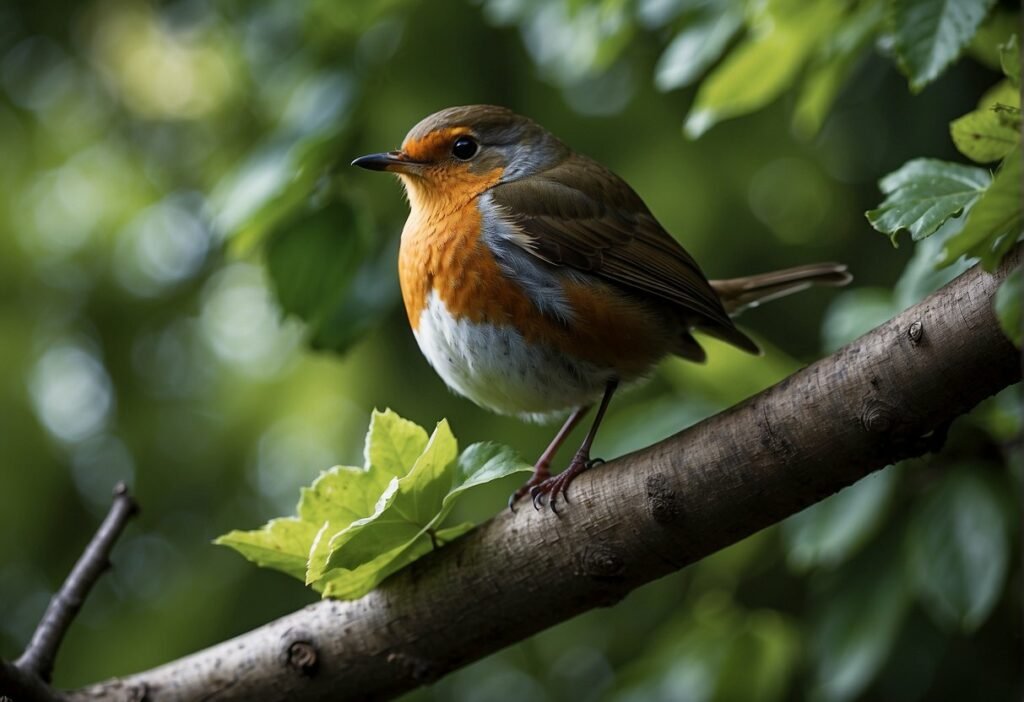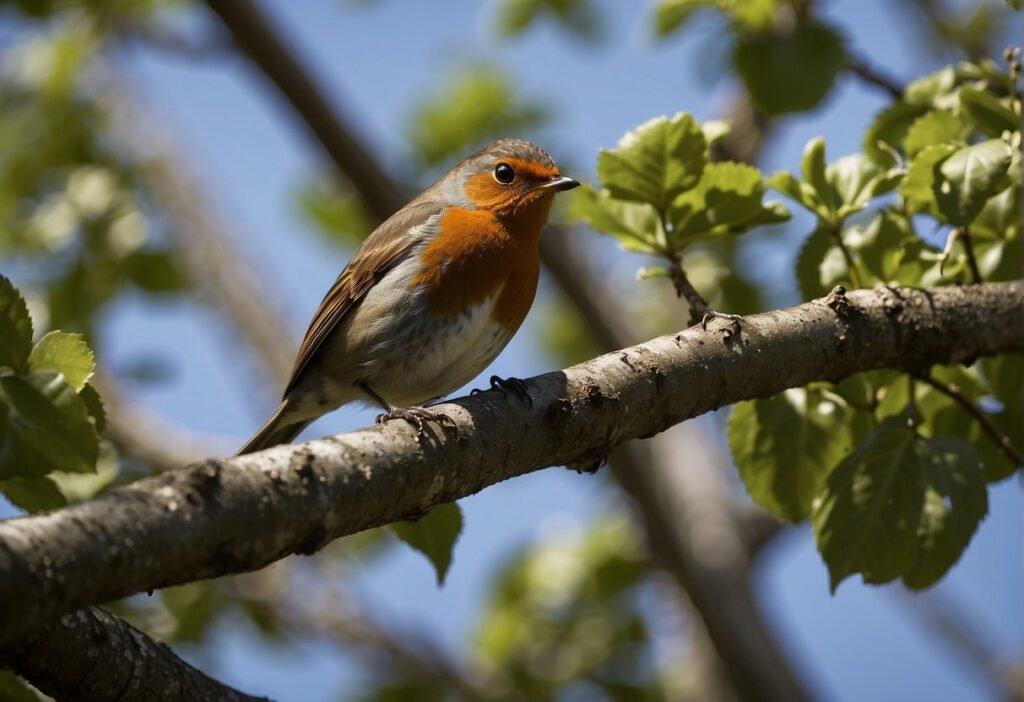Robins are a common sight in gardens and parks, with their distinctive red breasts and cheerful song. However, despite their ubiquity, there are many myths and misconceptions surrounding these beloved birds. In this article, we will explore some of the most common myths about robins and separate fact from fiction.

One of the most pervasive myths about robins is that they are a sign of spring. While it is true that robins are often associated with the arrival of spring, they are actually present in many areas year-round. In fact, some robins never leave their breeding grounds, while others migrate south in the winter and return in the spring. So, while the sight of a robin may be a welcome sign of warmer weather to come, it is not necessarily an indicator that spring has arrived.
Another common myth about robins is that they lay one egg per day until their clutch is complete. While this may be true for some bird species, it is not the case for robins. Female robins typically lay one egg per day, but they take breaks during the laying process. This means that the number of days it takes for a robin to lay a complete clutch can vary. Understanding these and other myths about robins can help birdwatchers and nature enthusiasts better appreciate these fascinating creatures.
Debunking Robin Myths
Robins are a common sight in North America, and they are often associated with springtime and good luck. However, there are many myths and superstitions surrounding these birds that are not entirely accurate. In this section, we will explore some of the most common robin myths and debunk them.
Robins as Harbingers of Spring
One of the most popular myths about robins is that they are the first sign of spring. While it is true that robins do tend to appear more frequently in the spring, they are not necessarily the first birds to arrive. In fact, many other bird species also return to their breeding grounds in the spring, including blue jays, cardinals, and goldfinches.
The Color Red and Its Folklore
Another common myth about robins is that their red breast is a symbol of good luck. In some cultures, it is believed that seeing a robin is a sign of good fortune or a message from a deceased loved one. However, there is no scientific evidence to support these claims. The color red is simply a result of the pigments in the robin’s feathers, and it has no special significance beyond that.
Robins and Superstition
Robins have also been associated with various superstitions throughout history. For example, some people believe that killing a robin will bring bad luck or even death. Others believe that burying a robin under the doorstep of a new home will bring good luck. These superstitions are not based on any factual evidence and are simply the result of folklore and legend.
In Norse mythology, the robin was associated with the god Thor and was believed to be a symbol of protection. However, this belief has no relevance to modern-day robin myths and superstitions.
In conclusion, while robins are fascinating birds, many of the myths and superstitions surrounding them are simply not true. By debunking these myths, we can gain a better understanding of these birds and appreciate them for what they are.
Understanding Robins
Robin Behavior and Habitat
Robins are a type of songbird that belong to the thrush family. They are one of the most common birds in North America and can be found in a variety of habitats, including forests, fields, parks, and backyards. Robins are migratory birds and can be found in different parts of the continent depending on the season.
During the breeding season, robins establish territories and build nests. They are known for their distinctive red breast and beautiful plumage. Robins are primarily insectivores and their diet consists of earthworms, insects, and mealworms. They also eat fruits and berries.
Reproduction and Nesting Habits
Robins are monogamous and mate for life. During the breeding season, females lay clutches of blue eggs in nests made of grass and mud. The nests are usually located in trees or shrubs. Robins are known for their dawn chorus, which is a beautiful and melodic song they sing to attract mates.
After the eggs hatch, the parents take turns feeding the chicks until they fledge. Robins can have multiple broods in a single breeding season. It is important not to disturb nesting robins, as it can cause stress and harm to the birds.
In conclusion, understanding the behavior and habitat of robins can help attract them to your backyard and appreciate their beauty and importance as a common bird species.
Frequently Asked Questions
Is it true that robins are a sign of death?
No, this is a common myth. While robins are sometimes associated with death in certain cultures, there is no factual basis for this belief. Robins are simply birds that are commonly found in many parts of the world.
Are robins considered messengers from angels?
This is another common myth. While some people believe that robins are messengers from angels, there is no evidence to support this claim. Robins are simply birds that are known for their distinctive red breast and cheerful song.
What does it signify spiritually when a robin visits you?
In some spiritual traditions, robins are believed to represent new beginnings and renewal. Seeing a robin may be seen as a sign that it is time to start fresh and leave the past behind.
Does the appearance of a robin symbolize love in spiritual contexts?
While some people believe that robins symbolize love, this is not a widely accepted belief. Robins are simply birds that are known for their beauty and song.
What are the implications of seeing a robin during winter?
Seeing a robin during the winter months can be a sign of hope and resilience. Robins are known for their ability to survive in harsh conditions, and their appearance during the winter months can be seen as a reminder that spring is on the way.
What does it mean if a robin enters your home?
If a robin enters your home, it may be a sign of good luck or a message from the spirit world. However, it is important to remember that robins are wild animals and should be treated with caution and respect. If a robin enters your home, it is best to contact a wildlife expert for assistance.




